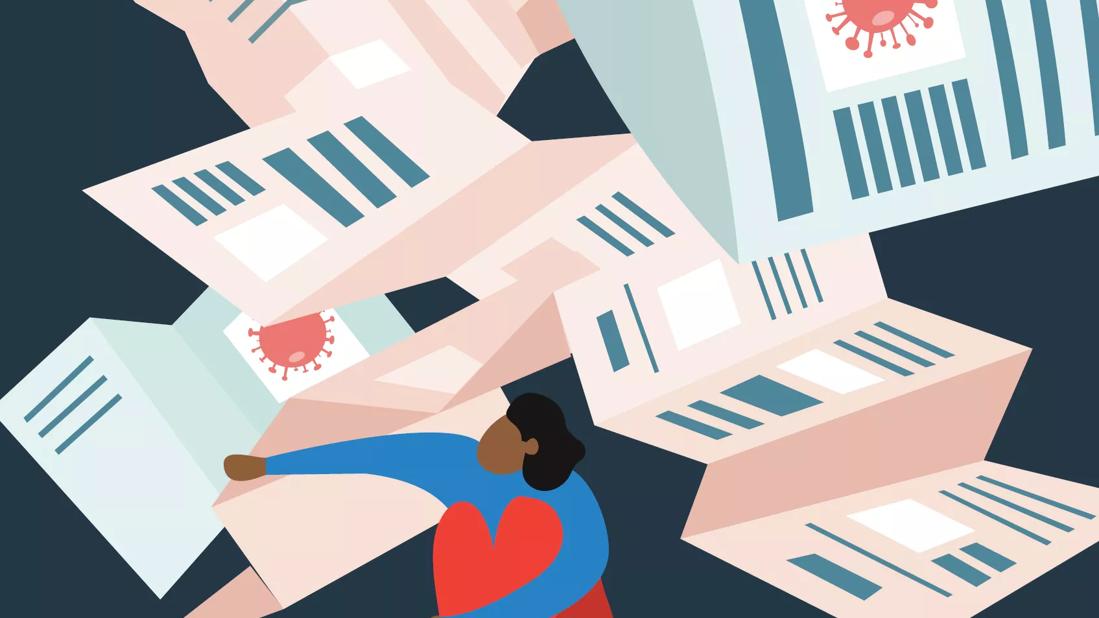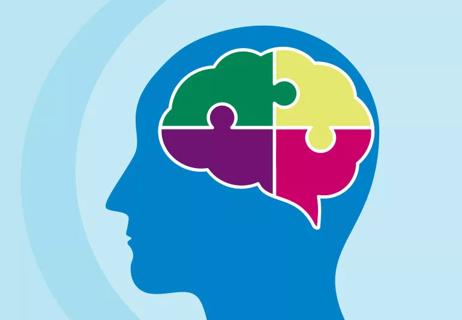Advertisement
Set your limits and find your balance

In our modern world, there are many stressors and sources of anxiety. Global events, health-related issues and an overload of information from social media can add up quickly. And all of this can create overwhelming stress.
Advertisement
Cleveland Clinic is a non-profit academic medical center. Advertising on our site helps support our mission. We do not endorse non-Cleveland Clinic products or services. Policy
“News has become more continual and more immediate,” says psychologist Matthew Sacco, PhD. “It’s harder now to step away from the digital world. The constant stream of information is changing what we’re exposed to and what our brains are doing.”
Stress from information overload can have serious consequences. High stress can lead to a variety of health issues like high blood pressure and nausea. But Dr. Sacco explains that just as the world is changing, our tools for dealing with stress are changing, too. Stressors can come from an array of sources daily, so it’s important to find ways to manage stress day by day.
“We are inundated with so many things, not just the news,” says Dr. Sacco. “We’re inundated with our own personal things that are going on, which on their own aren’t overwhelming. But over the course of time, when your brain is processing all this information — eventually, you do start to feel it.”
Dr. Sacco shares tips and tools that can be used during times of high stress.
We’ve all been there. When a major news event or crisis happens, many of us turn to our phones, internet searches and social media feeds to feel informed. But unchecked, this habit can lead to doomscrolling — the act of subjecting yourself to a constant stream of negative or stressful news from social media. This can lead to burnout and feeling overstimulated, so it’s important to set limits.
While you might feel a deep desire to stay informed — about global events, gas prices and local news — setting boundaries around how much information you take in is important. According to Dr. Sacco, something as simple as getting a notification that reminds you how long you’ve been staring at your screen can help you stop the doomscrolling cycle. If even small doses of screen time cause you stress, you might want to make an even greater effort to get your phone out of the picture.
“It’s all about finding a balance because there’s certainly an amount of being aware of what’s going on in the world, as things do change day to day,” says Dr. Sacco. “But being mindful of your reaction to those things is important.”
When it comes down to it, there may be some days when it’s hard to escape the negative or overwhelming news on your screen. Take stock of your reactions and how you’re feeling. Then, Dr. Sacco recommends focusing on what you can control.
Advertisement
“Being mindful, first of how you react and how you can adjust what’s coming into your system, that’s the only thing you really can control,” he says.
Advertisement
The last two years of the ongoing pandemic have caused additional stress and anxiety for many people. Now, as society begins to open back up, readjusting to past activities can bring another layer of stress. Normal things such as grabbing dinner with friends or going to concerts can be hard to go back to with comfort.
If you’re struggling with the return of pre-pandemic activities and gatherings, Dr. Sacco recommends easing back into group settings in a way that’s good both for your physical and mental well-being. This means surrounding yourself with those in your life who’ll respect your boundaries related to the pandemic and COVID-19 safety measures.
“If you’re going to get back socially to being in groups, you probably want to start with the group of people you’re most comfortable with,” advises Dr. Sacco.
Advertisement
Learn more about our editorial process.
Advertisement

Our collective misremembering of events comes from a surplus of false memories

This alternative brain-body therapy focuses on unlocking pent-up feelings, memories and tension that may be stuck in your brain and body

While walking, be mindful of your body, your mind, your place in the world and all five of your senses as you pave a path forward, one step at a time

Local LGBT centers, online directories, visual cues and gender-affirming care or non-discrimination policies can all be helpful resources and cues

In a world where instant gratification is the norm, you can train yourself to be more comfortable waiting patiently

Look to activities you enjoy — or try a new hobby — to help foster meeting new people

This romantic orientation involves little to no romantic attraction to others and exists on a spectrum

Stress and unhealthy habits can lead to more colds, but taking some precautions may help you stay well

Focus on your body’s metabolic set point by eating healthy foods, making exercise a part of your routine and reducing stress

PFAS chemicals may make life easier — but they aren’t always so easy on the human body

While there’s little risk in trying this hair care treatment, there isn’t much science to back up the claims